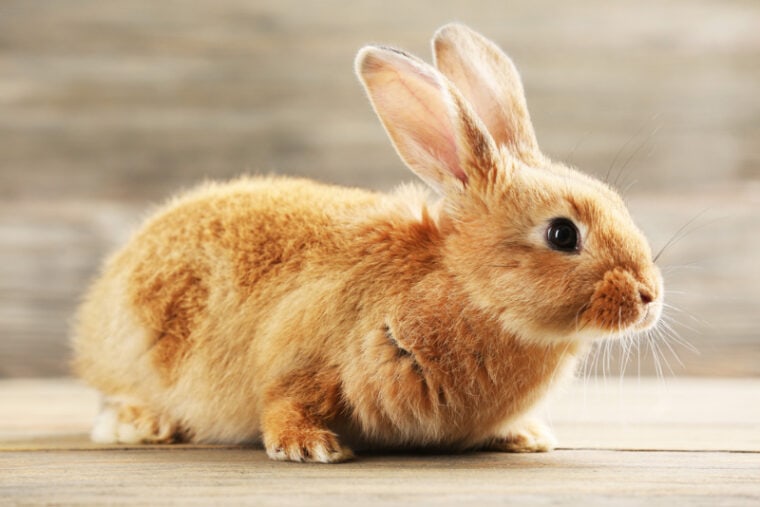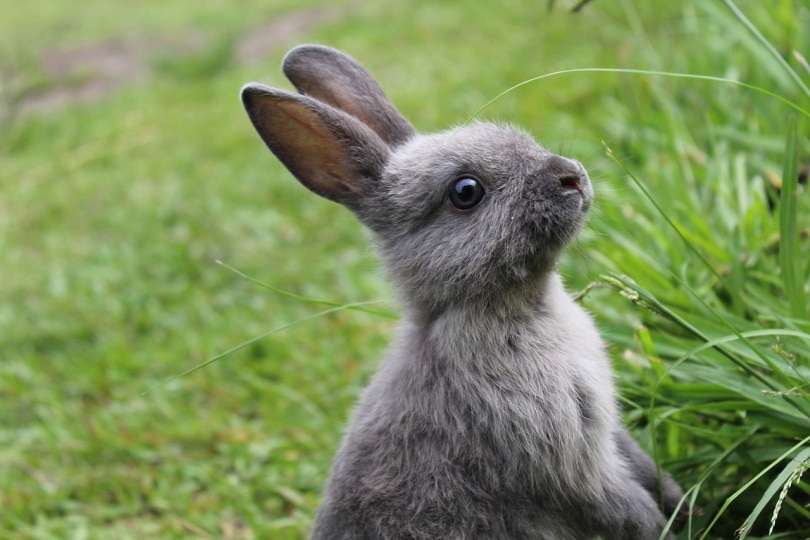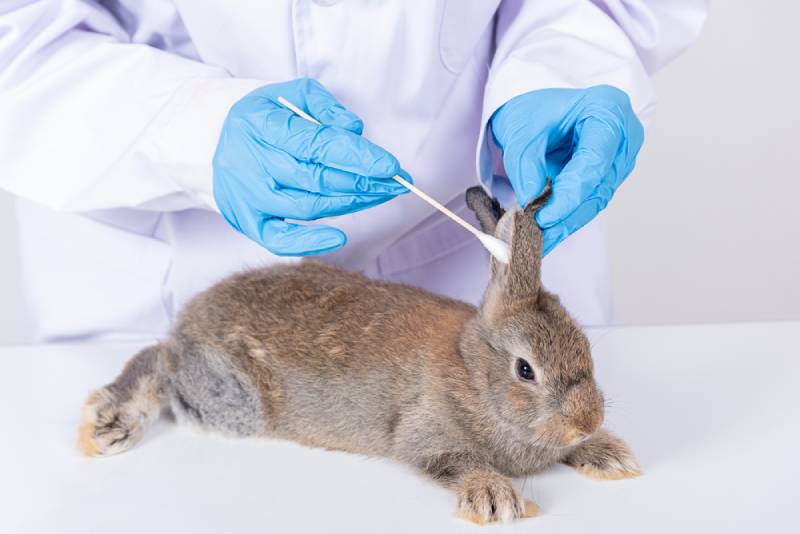
Click to Skip Ahead
If you’ve had a rabbit for a while, you probably already know their happy body language. But there may be signs that confuse you, like when your adorable furball starts nibbling your fingertips. Is that a sign of love and joy, or are they expressing their dissatisfaction?
We designed this guide to help you decipher the sometimes-obscure signals of joy that your long-eared companion displays.
The 10 Signs of a Happy Rabbit
1. Your Rabbit Is Hopping Around
A bunny that thrives is a bunny that does adorable hops in the air, sometimes accompanied by a hilarious martial-arts-style sidekick or an airborne twist!

2. Your Rabbit Is Having the Zoomies
Zoomies aren’t just for dogs and cats! This exuberant display of happiness and energy can also occur in rabbits. So, if you witness your little friends dashing around your living room with boundless enthusiasm, you can be certain that they’re in a joyful state of mind.
3. Your Rabbit Is Licking You
Your rabbit may also demonstrate their happiness by licking either you or their fellow bunny companion.
4. Your Rabbit Is Nudging You
Whether it’s a gentle nudge to your hand, foot, or pant leg, your rabbit may nudge you as a way of seeking attention. Conversely, a nudge might indicate that they’ve had their fill of attention.

5. Your Rabbit Is Flopping
Strange as it may seem, rabbits that suddenly drop onto their sides are likely relaxed and ready for a little nap.
6. Your Rabbit Appears Well-Groomed
Like cats, rabbits grooming themselves is a sign that they’re happy. If your rabbit grooms you or their long-eared companion, it’s a sweet display of affection—for both of you!
7. Your Rabbit Is Sleeping in a Loaf Position
Just like a content cat, a rabbit that folds their front legs underneath in a loaf position is clearly happy, cozy, and relaxed.

8. Your Rabbit Is “Purring”
If your rabbit chatters lightly, vibrate their teeth, and emits a noise akin to a cat’s purr, this is another sign of happiness. This is not to be confused with bruxism, which is a louder grinding of teeth that indicates possible pain.
9. Your Rabbit Is Tossing Toys Around
If your rabbit starts tossing their toys around, dragging them along, or even giving them a playful tap with their hind legs, you can be sure they’re in a happy state!
10. Your Rabbit Is in a Sprawling Posture
The sprawling posture is when your rabbit is typically at their most relaxed and content, with their back legs to the side, front legs stretched forward, and head held high.
How Do You Know When Your Rabbit Is Unhappy?
Now that you know the most common signs of a happy rabbit, let’s explore those that may indicate distress, fear, or discomfort:

Tips to Prevent Unhappiness and Boredom in Your Rabbit
To keep your bunny happy, you need to pay close attention to their basic care needs. This includes giving them a balanced diet, a bonded companion, a large and comfortable enclosure, access to the outdoors or space to run around, regular check-up visits to the vet, and as much love and attention as possible.
Ensuring your rabbit’s mental well-being goes beyond basic care. This critter needs adequate enrichment to avoid boredom and maintain a good mood. This is why a rabbit with nothing to occupy their mind risks developing physical health problems, behavioral issues, and heightened stress and anxiety. It’s your responsibility to create an environment that meets your rabbit’s behavioral needs.
Conclusion
What could be more lovely than watching your darling rabbit hop for joy when you bring them their favorite snack? Knowing how to read your rabbit’s body language strengthens your bond and helps you know when something in their behavior becomes off.
So, watch for these behaviors, but don’t forget to savor all the joy that your happy bunny will bring you every day!
See Also:
- Why Is My Rabbit Rubbing Her Chin on Everything? Reasons for This Behavior
- How Do I Know If My Rabbit Likes Me? Signs & Bonding Tips
Featured Image Credit: Africa Studio, Shutterstock










